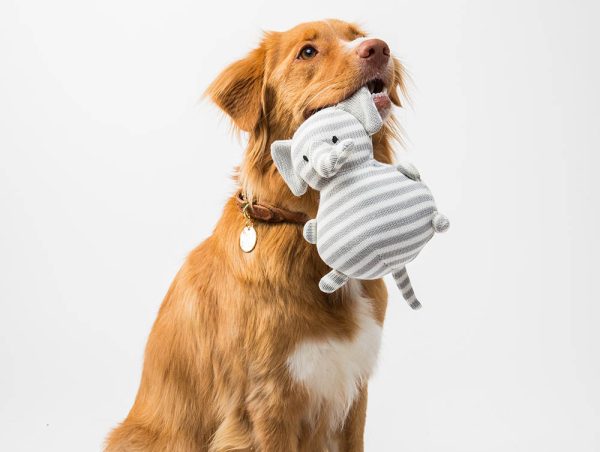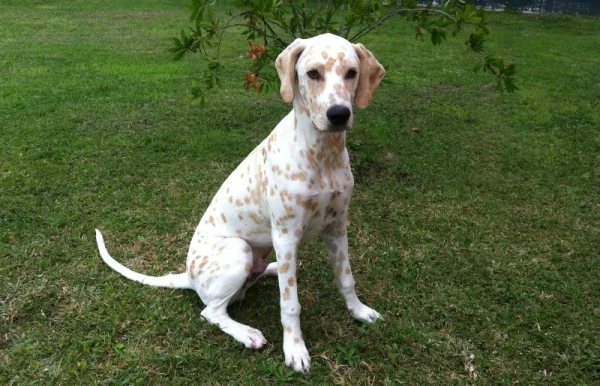In this article
On the surface, wondering if a dog can get bird flu might sound like a bit of a no-brainer, but when we realize that humans, cattle, cats, and other mammals can become infected with the deadly H5N1 virus, it suddenly doesn’t seem that strange to be worried about our dogs.
Avian influenza, more commonly referred to as ‘bird flu’ or H5N1 is a highly contagious disease that has sporadic outbreaks throughout the world,1 with devastating effects on the poultry industry and wildlife population. Historically, the disease has only been known to spread from bird to bird and occasionally from bird to mammal, but recent outbreaks are showing signs of worrying changes in the virus, with cases of H5N1 found in dairy cattle, spreading between cows and onto humans through direct exposure to infected animals.2
Although the severity of the clinical signs in both humans and cattle has been relatively mild overall, as of January 22, 2025, there have been 68 confirmed cases of H5N1 in cats 2. These cases presented with severe respiratory and neurological signs, and were often fatal. It is believed that the majority of these cases contracted the virus by consuming unpasteurized milk or raw meat, and several manufacturers of raw cat food have issued voluntary recalls of products at risk of contamination.3
Knowing that cats have been infected, and severely affected, by bird flu, it’s natural to be concerned about the risks to our canine companions.
So, can dogs get bird flu?
Yes, dogs can get bird flu, however, there have been no actual reported cases thus far.
Keep reading to learn how the current bird flu situation could affect your dog, what signs to look out for, and the steps you can take to keep your pets and family safe.
What Is Bird Flu?

Bird flu is a contagious form of the influenza virus that spreads rapidly through avian populations. It has a high fatality rate, and when detected in farms, invariably leads to the culling of affected and in-contact bird populations. There have been several strains of the avian flu virus over the years,4 including:
- H5N1 (since 1997)
- H7N9 (since 2013)
- H5N6 (since 2014)
- H5N8 (since 2016)
With H5N1 being the source of the current outbreak. Unfortunately, due to the nature of influenza viruses, outbreaks have and will continue, to occur periodically, and it is the ability to adapt and mutate that has the world worried.

What Are the Signs of Bird Flu?
The signs of N5N1 vary between species, with birds displaying the most severe form and the highest fatality rate.
| Clinical Signs of Bird Flu (H5N1) Infection | |
| Birds |
|
| Cattle |
|
| Humans |
|
| Cats |
|
| Dogs |
|
Can Dogs Get Bird Flu?
Dogs have tested positive for H5N1 in areas affected by bird flu outbreaks, as well as when infected experimentally, but in both cases, none of the animals showed any clinical signs of the infection. However, in 2006, experimental infection of dogs with equine influenza, H3N8, resulted in similar, subclinical results, while dogs infected naturally showed severe clinical signs and a high fatality rate.
Although it is a good thing for our dogs that the current avian flu does not appear to cause clinical disease, they are able to carry and transmit the virus. With this in mind, we still need to be vigilant and keep our dogs away from suspected cases of bird flu.
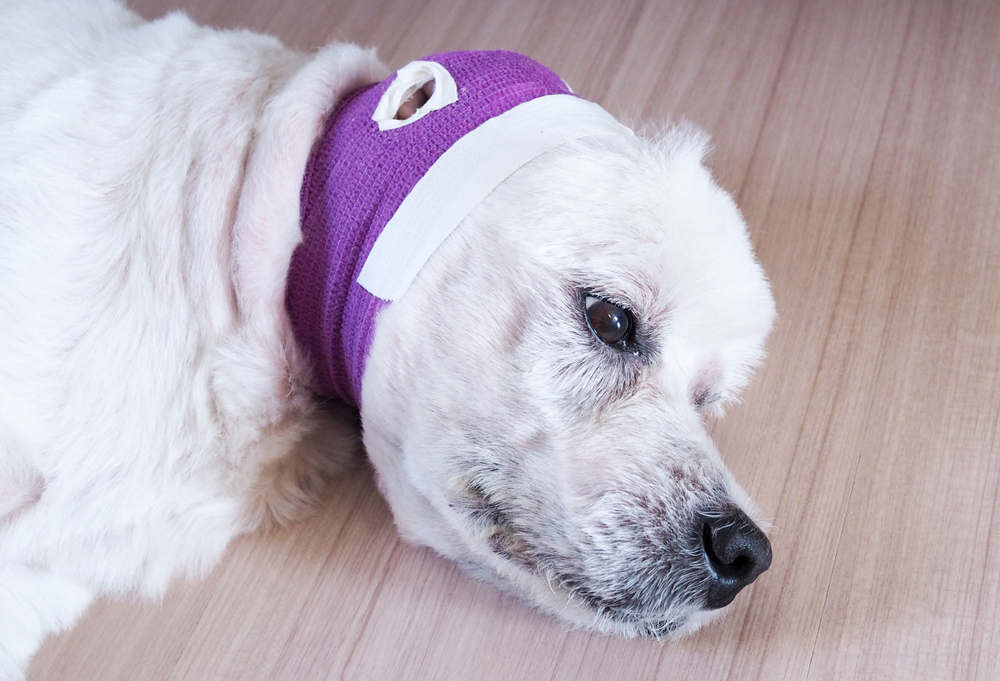
How Is Bird Flu Diagnosed?
If you suspect that your pet has been infected or exposed to avian flu, it is important that you contact your veterinarian immediately for advice, and follow the guidelines set out by the CDC.
If you need to speak with a vet but can't get to one, head over to PangoVet. It's our online service where you can talk to a vet online and get the advice you need for your pet — all at an affordable price!

The risk of the infection spreading to you from your pet is low, but not impossible, so it’s important to protect yourself and your family. Because the neurological signs of H5N1 can mimic those of rabies, a swift and accurate diagnosis is vital.
Your vet will need to contact the local state animal health official, state public health veterinarian, or state veterinary diagnostic laboratory to find out where to send any samples for testing, which may involve mouth swabs, urine, or blood samples.
How Is Bird Flu Treated in Dogs?
Being a flu virus, there is no specific treatment for H5N1. Where secondary bacterial infection is suspected or diagnosed, antibiotics will be given, but in most cases, supportive care is needed, which may include:
- fluids (oral or intravenous)
- antiinflammatory medications
- anti-seizure medication
- antiemetics (to stop vomiting/nausea)
Depending on the type and severity of your dog’s clinical signs.
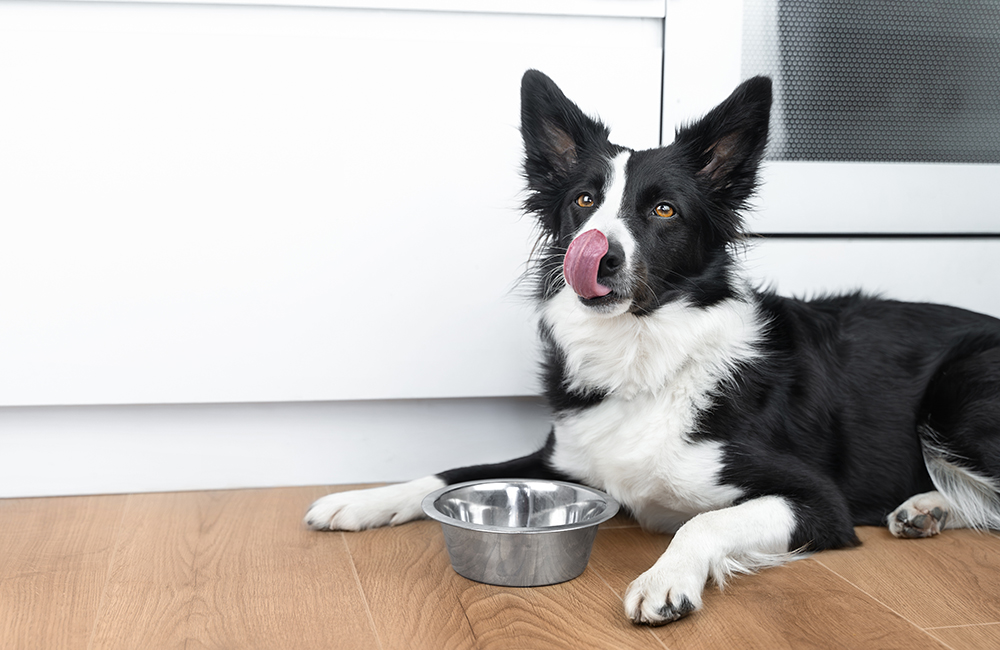
How Can I Protect My Dog From Bird Flu?
Although the risk of your dog becoming infected with H5N1 is currently very low, there are some steps you can take to keep those risks even lower, and these are doubly important if you have other pets at home as well.
- Stay informed: Keep up to date with news and current information about bird flu in your area. Subscribe to Dogster.com for updates and alerts on this, and other pet illnesses.
- No raw meat or eggs, or unpasteurized milk: Although there are some health benefits to feeding your pets a raw diet, this is a perfect example of why it does carry higher risks. If you want to provide your dog with the benefits of a whole, natural diet, consider fresh food options like The Farmer’s Dog or Nom Nom which gently cook their human-grade ingredients to remove pathogens, then freeze to keep them fresh without preservatives.
If you normally feed raw, contact your supplier for advice. Gently cooking the food should greatly reduce the risks to your pets, but it is better to be safe than sorry. Remember to remove any bones before feeding cooked chicken to your dogs.
- Avoid and report sick birds: although it goes against any animal lover’s instincts to leave a sick or injured animal alone, if you see an unwell bird, the safest thing to do is to avoid touching it and follow the CDC’s advice on what to do next. If possible, you can place a cardboard box or similar over the bird to protect it from predators until help arrives.
- Keep cats indoors: if you have a cat, keep them indoors and away from the risk of contracting the virus from wildlife
- Keep food and water bowls indoors: avoid any contact or contamination from wildlife by keeping your pet’s bowls inside the house.
Frequently Asked Questions (FAQ)
Can I get bird flu from my dog?
Technically, yes, it is possible for bird flu to be transmitted in secretions and spread the virus from dogs to humans, however, the risk is extremely low. By maintaining good hygiene levels, washing your hands after playing with your dog, and avoiding close contact with their face, saliva, and urine, it is highly unlikely that your dog will give you bird flu. People with chronic illness or compromised immune systems should be extra cautious.
Can I give bird flu to my dog?
As above, it is possible, but the risk is very low. If you have been infected or in contact with avian flu, reducing your contact with your pet, wearing a mask, and practicing good hygiene, should keep you both safe.
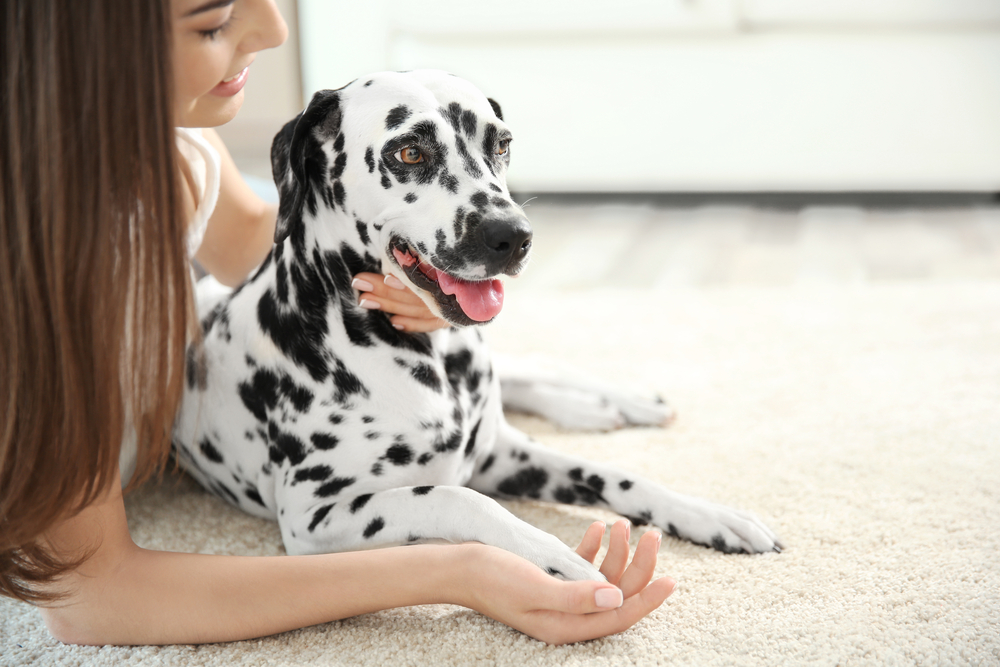
Will the government want to kill my dog?
No! Although you may have heard of flocks of farmed birds being culled, this is done to prevent suffering and limit the spread of the disease. Animals like dogs and cats pose a very low risk of spreading the disease, so you have nothing to fear from their results being reported. Cases of infection in pets must be recorded, however, so that we can better understand how, why, and where this disease may be spread.
Final Thoughts
Although dogs can become infected with bird flu, at this stage, there have been no reports of any cases where dogs are showing clinical signs of disease. However, as we have seen with other viruses such as equine influenza, it may be possible for the virus to mutate into a more virulent form, so it is important to stay informed and vigilant. There have been numerous fatalities reported in cats infected with bird flu, so it is vital to keep your feline friends protected during this, and any future bird flu outbreaks.
Practicing good hygiene, avoiding areas of known outbreaks, and leaving sick birds alone are simple ways to keep you and your pets safe, and do not feed any raw meat, eggs, or unpasteurized milk to your pets.
Also see:
- Can Dogs Get the Flu Like Humans? Vet-Approved Facts & FAQ
- Bird Flu Pet Food Recall – What Does It Mean For You & Your Dog?
Featured Image Credit: Mark R Croucher, Shutterstock











